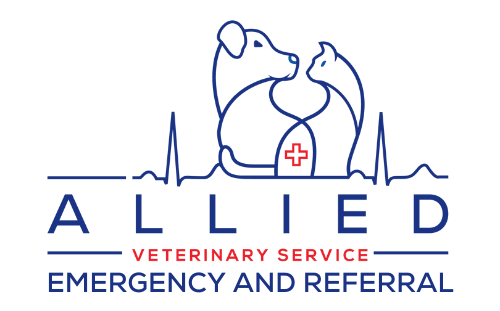Medial Patella Luxation Surgery in Dogs
Introduction:
Medial Patella Luxation (MPL) is a common orthopedic condition in dogs, where the patella (kneecap) dislocates or moves out of its normal location toward the inside (medial) aspect of the knee. This condition can cause discomfort, lameness, and long-term joint issues if left untreated. Understanding MPL and its treatment options, including surgery, can help your dog lead a more comfortable and active life.
Understanding Medial Patella Luxation:
MPL occurs when the patella is not properly aligned and slides out of its groove on the femur, causing pain and mobility issues. It's most commonly seen in small breeds but can affect dogs of any size.
Why perform surgery at Allied Veterinary Service?
- Our surgeons have undergone rigorous residency training in small animal orthopedic, soft tissue and minimally invasive surgery.
- Patients receiving this procedure typically receive spinal blocks and/or regional pain blocks to ensure the best experience possible for your beloved pet.
- Our doctors will care for your pet 24/7 before and after your pet’s surgery and tailor treatment according to the patient’s needs.
Symptoms of MPL:
- Intermittent lameness or skipping gait
- Sudden yelping or signs of pain during activity
- Difficulty in climbing stairs or jumping
- Holding the affected leg off the ground
Grades of Patella Luxation:
MPL is categorized into four grades, ranging from mild (Grade I), where the patella can manually be luxated but returns to its normal position, to severe (Grade IV), where the patella is permanently dislocated.
Surgical Treatment: Medial Patella Luxation Correction:
For dogs experiencing significant discomfort or those with Grade II-IV MPL, surgical intervention is often recommended. The goal of surgery is to realign the patella, ensuring it moves smoothly within its groove, thereby reducing pain and preventing further joint damage.
Benefits of Surgery:
- Alleviation of discomfort and pain
- Improved mobility and quality of life
- Prevention of long-term joint damage and arthritis
Surgical Options Include:
- Deepening of the femoral groove to better accommodate the patella
- Realigning the patellar with soft tissue reconstruction techniques
- Correcting bone deformities to improve alignment
Risks and Complications:
While surgical correction of MPL is generally successful, as with any surgery, there are potential risks:
- Infection and implant complications
- Reaction to anesthesia
- Recurrence of luxation
- Postoperative stiffness or arthritis
Recovery and Aftercare:
Post-surgery, your dog will need:
- An Elizabethan collar to prevent licking or biting at the incision site
- Restricted activity with gradual reintroduction to normal activities
- Physical therapy may be recommended to aid in recovery
Regular follow-up visits to monitor healing and progress
Cost Considerations:
The cost of MPL surgery can vary based on the severity of the condition, the specific procedures required, and post-operative care. Our team will provide a detailed estimate tailored to your dog's needs.
Final Thoughts:
Choosing surgery for your dog is a significant decision influenced by their overall health, age, and severity of MPL. Our veterinary team is committed to providing the highest standard of care, supporting you and your pet through diagnosis, treatment, and recovery.
Legal Disclaimer:
This pamphlet is intended for educational purposes only and does not substitute for professional veterinary advice. Treatment outcomes may vary depending on individual circumstances. Consult with a veterinary professional to determine the most appropriate care for your pet.
Need More Information?
If you have questions or concerns about MPL and treatment options for your dog, please contact us. Our dedicated team is here to ensure your pet receives the best possible care.

